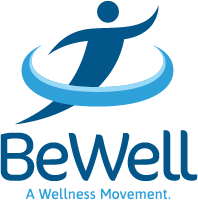
Several prominent health systems have spent the past several years working to improve and reduce healthcare costs. The starting point? Their own employees.
UVA Health System was one of several members of the Health Employer Exchange (HEE) to gather in Charlottesville recently to share successes and best practices for helping to improve the health of their employees. The goal is to reduce the burden of chronic diseases and improve employees’ health and wellbeing, which in turn reduces the cost of healthcare.
Among those who came to Charlottesville were:
- Baylor Scott & White
- Cleveland Clinic
- Northwestern Memorial HealthCare
- UCLA Health
- Yale New Haven Health System
- Duke Health
- Geisinger Health System
- The Kennedy Forum
- IBM
“The Health Employer Exchange is a collaborative of academic medical centers that have come together to put our hands around improving the health of our workforce – particularly, to focus on keeping our healthy employees well, and to reverse chronic health conditions that our employees suffer from,” explains Richard Shannon, MD, UVA Executive Vice President for Health Affairs and Chair of the HEE Oversight Committee.
Shannon explains that there are two reasons why employers are placing increased focus on the health of their employees:
- A healthy workforce is essential to providing high-quality service.
- Employers are paying more and more to provide healthcare for their workforce, and this is affecting company performance. “When you combine a commitment to make your employees well with a series of initiatives that also help to reduce costs, it’s a very attractive proposition for self-insured employers,” says Shannon.
The relationship between the HEE and the Affordable Care Act (ACA), Shannon explains, is linear.
The ACA is about creating “population health,” which means striving to keep people healthy to minimize chronic conditions that become costly at an advanced stage, such as advanced heart failure and advanced liver failure. Organizations that have shown that they can successfully take care of their own workers and prevent the advancement of chronic health conditions can apply those same lessons to the general public. “Learning how to do this well allows us to apply those very same lessons to the general population and really affect the kind of reform and delivery system that we hope will make a healthier America,” says Shannon.
Here is a list of the three main topics discussed at the recent HEE meeting in Charlottesville:
- UVA Health System has demonstrated that it is possible to restore health and preserve wellness in the workforce in a short amount of time. Just in the past six months, 330 UVA employees have lost a combined total of 2,600 pounds through intense personal coaching designed to increase awareness and understanding of diet preference, and by increasing access to exercise programs in the community.
- Stress and depression are common among healthcare workers, and the HEE is exploring new programs and tools that can help employees develop resilience and make mental health as much of a priority as physical health.
- The HEE is exploring the use and effectiveness of economic incentives in keeping employees engaged in wellness and prevention.
So, what’s next? Members of the HEE will take the information and lessons learned at the meeting and put it into practice in their own existing platforms. Then, in six months or so, they’ll reconvene to share whether or not those methods have been effective. Shannon calls this a “continuous learning network” that is ongoing, and the results have the potential to extend beyond healthcare companies. “Our goal is to make healthier workers everywhere, and to share these lessons as soon as they’ve been proven to work,” he says.